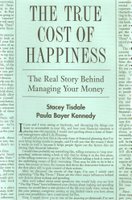Book title bloopers from WSJ - how clever!
Change of fortune makes for book-title bloopers
By LOUISE RADNOFSKY
The Wall Street Journal
WASHINGTON — A financial crisis, a historic presidential campaign and a series of political scandals have scrambled how people understand the world in the past few years.
For some authors, that presents a ticklish problem.
"Obviously I would change the title," says David Lereah, the former chief economist of the National Association of Realtors and author of "Why the Real Estate Boom Will Not Bust — And How You Can Profit From It," published in paperback in February 2006. "There are places in the book where I actually say the boom is not healthy. But people don't read the book, and they just look at the title and they criticize it."
Brooke Masters, author of "Spoiling for a Fight: The Rise of Eliot Spitzer," says her book was right at the time it came out — 18 months before the New York governor was brought down by a sex scandal in March of this year. In any case, she adds, "Spoiling for a fight is totally accurate."
This election season will likely bring more casualties. Among "Why the Democrats Will Win in 2008: The Road to an Obama White House"; "A Bound Man: Why We Are Excited About Obama and Why He Can't Win"; and "Comeback: Conservatism That Can Win Again," someone has to be wrong.
Politics, economics and social-science books are a mainstay of adult publishing, an increasingly lucrative market. Nonfiction sales in the U.S. have risen steadily to 311 million books in 2007 from 270 million in 2004, according to Nielsen BookScan.
But with tens of thousands of new titles competing for attention each year, authors have to make some bold claims — and fast. It's possible to turn around a topical book in weeks. What was once written as history is now appearing as prediction.
"It was more timely than a monthly magazine," says Steve Gill, a conservative radio host and author of "The Fred Factor: How Fred Thompson May Change the Face of the '08 Campaign," which was published by Mr. Gill's business partner in May 2007.
The book "blew through" its first print run of 10,000 copies ahead of the former Tennessee senator's declaration in September 2007 that he would run for president, Mr. Gill says. The Thompson campaign lasted barely four months. The book sold about 2,000 of its new run and the remainder were given away or trashed.
"It was truly intended all along to be a work in progress," Mr. Gill says.
Traditional publishing houses say they still want books to feel timeless despite the fast turnaround that new technology allows. "You hope that the book, even if it's about current affairs, will stand as a record of that event," says Carol Schneider, executive director of publicity and public relations for Random House Publishing Group, a division of Bertelsmann AG's Random House Inc.
But she acknowledges that accidents happen. "There's no way to manage it. You're talking about life."
That doesn't sit well with authors, who often blame their publishers when books are overtaken by events. "We argued back and forth," says Mr. Lereah, the real-estate author, who says he didn't want the titles to be so bold. "But you know, I'm a big boy, I agreed to what they told me to do and you've got to live with it," he adds.
Doubleday Business, Mr. Lereah's publisher and a unit of Random House, confirmed that the book's titles were suggested by the publishing team but said that they were based on his reasoning.
"In retrospect, everyone was fooled," says Roger Scholl, editorial director for Doubleday Business. "I would certainly say I was fooled. No one saw what was going to happen with real estate."
Mr. Lereah's book was served up in hardcover in February 2005 with the title "Are You Missing The Real Estate Boom? Why Home Values and Other Real Estate Investments Will Climb Through the End of the Decade — And How to Profit From Them." That edition sold 12,000 copies.
It was downhill from then. The paperback sold 2,300 copies in 2006 and 250 in 2007, according to Nielsen BookScan. So far this year, it's notched just 20 sales, Nielsen says.
Publishers say they're under pressure to craft titles that can quickly launch a book. "There is a trend of subtitles getting longer and longer and publishers insisting that a subtitle needs to explain everything about the book," says Bruce Nichols, vice president and publisher of Collins, a division of News Corp.'s HarperCollins. (News Corp. is the owner of Dow Jones & Co., publisher of The Wall Street Journal.)
Kevin Hassett, co-author of the 1999 book "Dow 36,000: The New Strategy for Profiting From the Coming Rise in the Stock Market," says criticism of his book isn't something he's lost a lot of sleep over. He is now an economics adviser to Republican presidential candidate John McCain. The Dow Jones Industrial Average closed yesterday at 11230.73.
"I think that it's important for public discourse for people to be willing to take clear positions," he says. "You can be negative and be wrong year after year and somehow it doesn't create angry critics, but if you're optimistic and incorrect the response is much more vocal."
And angry readers? They mostly have themselves to blame, says Philip Tetlock, a psychologist and author of "Expert Political Judgment: How Good Is It? How Can We Know?" which details humans' insatiable desire for more certainty than is possible.
"My counsel is greater modesty," Mr. Tetlock says. "People should expect less from experts and experts should promise less."
Labels: Balancing the Books, business books, Michelle Karas, title bloopers, Wall Street Journal
 RSS
RSS





